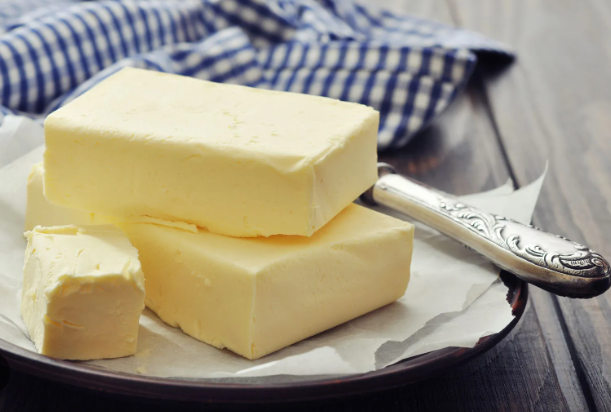“Also, dairy fat may not be the issue. The fat from dairy is not the issue. It’s the casein and the other hormonal compounds in the milk.
The government guidelines basically say that we shouldn’t really tell people to drink milk but they specifically recommend low-fat or fat-free versions because of the long-standing misguided view that saturated fat is the boogeyman for heart disease. Now, saturated fat may be actually really good for some people although maybe not for others, but for most people it’s actually ok, particularly people with metabolic issues, diabetes, and so forth.
And there’s been you know, troves of research that showed that it’s not the boogeyman we thought it was. And actually the dairy fat may be better. In fact, there was an article called ‘Butter is back’ in one of the major medical American journal of Cardiology where they actually and I’ll get into that in a minute, show that it was actually quite helpful for people with diabetes and prevention and so forth.
But there was a big review of saturated fat and I wrote a lot about this in my book ‘Eat fat get thin’. So if you want to learn more about it, you can go ahead and read that book. But there was a huge landmark review published in the Annals of Internal Medicine, one of the major medical journals in 2014 that look at the 72 most rigorous studies on dietary fat and heart disease including two randomized controlled trials which are hard to do, and also population studies, blood studies and they found that saturated fat and total fat consumption have very little effect to no effect on heart disease. They found that actually trans fat was a bad for sure but they found that people actually having the fats from dairy, actually had lower cardiovascular risk. Other studies have also shown this for diabetes. Those with higher levels of saturated fats from dairy which is a different kind of saturated fat actually have lower risk of diabetes.
So, you know, butters had a different reputation because it’s basically just animal fat. Most of it is saturated, not all of it by the way. Most foods are mixed fats or poly-monounsaturated, polysaturated and saturated. And the government tells us not to eat butter, right? But about 60% of the fats are saturated fats. 20% are monounsaturated and the rest are poly. But I think, you know, butter is not the enemy number one like we thought it was. It doesn’t mean you should eat butter as much as you want. It’s fine to eat it like our grandparents did – have a little butter – have grass-fed butter, it is fine. It has better fats, it has antioxidants, it has more carotenoids, it is a higher source of CLA which is an important conjugated linolic acid which boosts your metabolism and help, may help, prevent cancer and heart disease. So, have a little butter. Enjoy it. Track your numbers but some people are super respondents to saturated fat. I may be one of them. So, the people who are thin, lean athletes tend to get more saturated fat response. For some reason I think it’s genetic.
You’re going to have it in your veggies. Also be aware that saturated fat, plus sugar and starch, are a bad combo so butter on your veggies, put on your fish, protein, no problem. Mixing it with carbs and sugar, not a good idea. So, butter and bread – bad idea.”
You can watch here.

